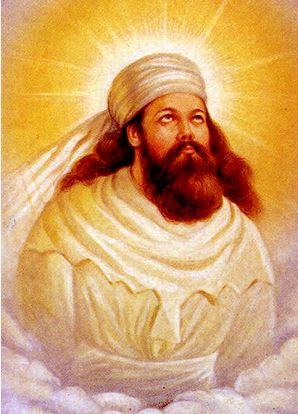Introduction: Who Was Zarathustra?
Zarathustra, also known as Zoroaster, was an ancient Persian prophet and spiritual leader who founded Zoroastrianism, one of the world’s oldest monotheistic religions. Believed to have lived sometime between 1500 and 1000 BCE (though some estimates place him even earlier or later), Zarathustra’s teachings laid the foundation for key concepts in Western religious thought, including the eternal battle between good and evil, free will, and the importance of individual choice.
The Origins of Zoroastrianism
Zarathustra was born in ancient Persia, likely in what is now northeastern Iran or southwestern Afghanistan. He lived in a time of polytheistic worship but began to receive divine visions from Ahura Mazda, the supreme god of truth and wisdom. These revelations led him to reject the prevailing religious norms and promote a new, monotheistic belief system.
Zoroastrianism teaches that life is a constant struggle between the forces of good (Spenta Mainyu) and evil (Angra Mainyu). Humans are expected to align themselves with truth and righteousness through good thoughts, good words, and good deeds—a core tenet of Zarathustra’s philosophy.
Zarathustra’s Teachings and Philosophy
At the heart of Zarathustra’s message is the idea that individuals have the power and responsibility to choose between right and wrong. This moral dualism is not deterministic; rather, each person must decide their path, and their choices shape not only their destiny but the fate of the world.
Key teachings include:
-
Monotheism: Worship of Ahura Mazda as the one true God.
-
Moral Dualism: The world is a battlefield between truth and falsehood.
-
Free Will: Humans must actively choose to follow the path of good.
-
Judgment: Souls are judged after death based on their deeds.
Influence on Other Religions
Zoroastrianism may have directly influenced the development of Judaism, Christianity, and Islam. Concepts like heaven and hell, judgment after death, angels, and the final battle between good and evil bear striking similarities to Zoroastrian beliefs.
Zarathustra’s ideas spread throughout the Achaemenid Empire and remained influential for centuries, particularly during the reigns of Persian kings like Cyrus the Great and Darius I.
Zarathustra in Popular Culture
Zarathustra's influence extends beyond religion and history. He appears in Friedrich Nietzsche’s famous philosophical work Thus Spoke Zarathustra, where the prophet is reimagined as a symbol of existential transformation. The classical piece Also sprach Zarathustra by Richard Strauss, famously featured in 2001: A Space Odyssey, also nods to his enduring cultural significance.
Modern Legacy
Today, Zoroastrianism is a minority religion, with communities primarily in India (Parsis) and Iran. Despite its small size, the faith continues to inspire spiritual seekers and scholars alike, and Zarathustra remains a revered figure in both religious and philosophical circles.
Conclusion
Zarathustra was more than just a religious reformer—he was a visionary who reshaped ancient thought and left an enduring mark on world history. His call for truth, righteousness, and individual responsibility remains as relevant today as it was over 3,000 years ago.





